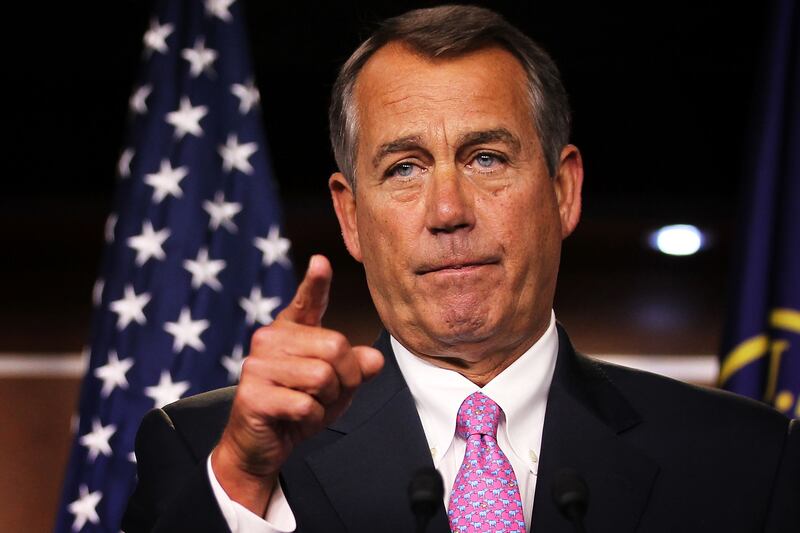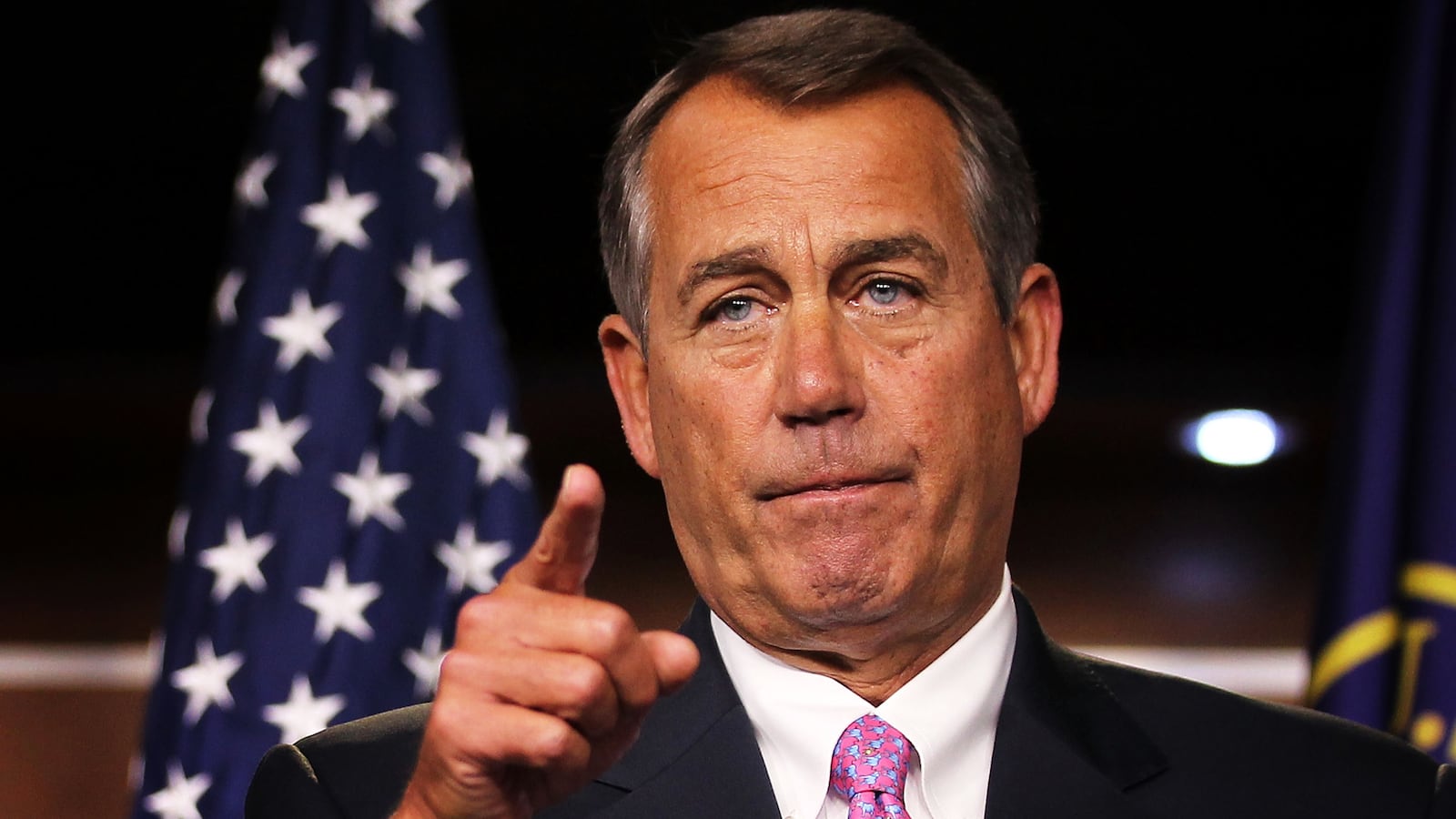As you ponder whether the Obama tax hike can pass the House, I bet you think something like, “All he needs is a few Republicans.” Right? I wouldn’t blame you for thinking it. Obama himself said last week: “If we can just get a few House Republicans on board, we can pass the bill in the House, it will land on my desk, and I am ready—I have got a bunch of pens ready—to sign this bill.” That’s how it works, right—218 votes? Friends, you’re hopelessly behind the times. The Republicans won’t allow measures to pass with just any 218 votes. It has to be mostly Republicans. Welcome to the little-discussed but possibly pivotal concept of the “majority of the majority.”

What does this mean? Pretty much just what it says: For Speaker John Boehner to bring any measure to the House floor, he has to see that a majority of the majority—that is, a majority of his GOP caucus—will support it. You might have in theory a bill that could pass with the support of 109 Democrats and 109 Republicans to reach the needed 218. You couldn’t ask for more bipartisanship than that. But 109 is not a majority of 241, so if Boehner and his whips were counting noses accurately in the run-up, this perfectly balanced measure would never see the light of day for a vote.
Sounds like madness? Yes, it does, and it is. But surely this is something, you say, that goes back a ways, and something both sides have done. Well, not really. It goes back, says congressional scholar Norman Ornstein, only to Denny Hastert, the GOP speaker during the Bush years who was the first to use the phrase. “It was a Hastert original,” Ornstein explained to me Monday. “In earlier eras, it would never have worked—too much heterogeneity in caucuses, to start. Hastert was a different Speaker, in another sense, seeing himself as more a field general in the president’s army than as first and foremost leader of the independent House, but to him that meant creating a majority party machine. More than anything, it formed the parliamentary party mindset.”
Sarah Binder, the congressional scholar at Brookings, notes that in fairness, the pseudo-parliamentary mindset began to develop in the 1970s and 1980s. “I think its parliamentary roots actually stem from liberal Democrats’ effort to challenge the power of conservative committee chairs who dominated the House agenda for a good portion of the 20th century,” Binder says. The Democrats started using the powerful House Rules Committee more aggressively to control the flow of what could and could not get to the floor.
So the Democrats certainly managed the action, but all we have to do is look at history and see that the Democrats didn’t follow this majority of the majority nonsense. Exhibit A: NAFTA. It passed with a minority of the Democratic majority but an overwhelming majority of Republicans.
Nope—it was Republicans who instituted this noxious rule, during the Bush era, probably at Karl Rove’s behest, to ram through every wedge issue they could. Just another manifestation of turning legislating into warfare by other means and making compromise impossible. In spirit, it’s like a House version of the filibuster. A minority of the body gets to block the potential will of a majority, and on a purely and unashamedly partisan basis.
So what does it have to do with the fiscal cliff? It means that you can forget the idea of 20 or so non-wild-eyed Republicans joining the Democrats in passing the higher tax rates. As Republican Tom Cole said last week—and Cole, remember, is one of the reasonable ones here, one of the few GOPers who has declared that he’d vote with the Democrats on such a measure: “You’re not going to come up here and be able to put together a deal with 170 Democrats and 40 Republicans—that’s just not in the cards.” The number, for the record, would have to be at least 26 Republicans in December. If they wait until the next session starts in January, the required number would go down to 18, since the GOP lost eight seats in the election.
But all that is academic because under GOP rules—and this by the way is an unwritten rule; no American political party could ever get away with putting such a thing in print and making it official—the tax-hike proposal would need to have the support of the majority of the House Republican caucus even to reach the floor. It’s blatantly undemocratic, and not enough people know that this is how the Republican Party operates, and I suspect a lot of them wouldn’t even believe it if you told them. It doesn’t help matters when even the president misrepresents the actual facts when he’s out on the stump.
There’s one possible way out of this, a wrinkle reported on Monday by ABC News. It seems that some Republicans are now talking about a scenario whereby they would allow a bill to come to the floor—the bill the Senate already passed, keeping the Bush tax rates on all dollars earned except above $250,000, but raising the rates at that end—and simply vote “present,” allowing it to pass on entirely Democratic votes.
I think that if they vote “present” on something 60-plus percent of the people support, they’ll look like complete idiots to your average American. Voting “present” on the biggest fiscal vote in years, to keep Grover Norquist happy and their caucus united? Hey, if that’s how they want to play it, fine by me. It’ll be nice to see their foolishness outweigh their malevolence.





